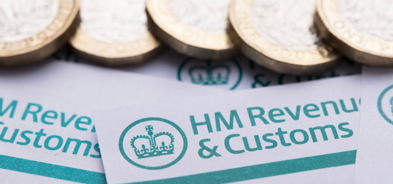Overseas income – under the radar
The pandemic hit companies and their dividends worldwide but other regions were hit less than the UK. An internationally diversified portfolio would have probably delivered a more stable income than a UK-focused one
Written by Tom White
Published on 18 Mar 20215 minute read

The UK has traditionally been the primary hunting ground for equity income investors. With world-leading companies such as AstraZeneca and HSBC, and a culture of paying out attractive dividends to shareholders, there was little need for investors to look elsewhere.
2020 highlighted a flaw in this approach. Once companies have begun paying dividends they’re generally very reluctant to cut them, doing so only in extreme circumstances. In 2020 a multitude of UK companies were hit by those extreme circumstances.
The Bank of England banned our banks from paying dividends to ensure they stayed liquid enough to cope with the pandemic. A combination of the pandemic and a Saudi/Russian price war sent the oil price plummeting, forcing both BP and Royal Dutch Shell to slash their dividends. In the case of Royal Dutch Shell, this was its first dividend cut since the Second World War. Investors relying on the UK for income had to rely on a somewhat smaller income – dividends for the market as a whole were down -37% over the calendar year (Refinitiv Datastream).
While we can’t change 2020 – much as we would like to – we can reduce the possibility of a repeat. And for dividends, as ever in investment, the key way to do this is through diversification.
Income from overseas
Diversification is generally applied to the total value of the portfolio, but it also applies to the income stream. The pandemic hit companies and their dividends worldwide but other regions were hit less than the UK. Put simply, an internationally diversified portfolio would likely have delivered a more stable income than a UK-focused one.
Past performance and any current or past yield figures provided should not be considered a reliable indicator of future performance.
Yields by region
The yield has long been a key attraction of the UK stock market. Even after 2020 its yield remains a standout globally, but other regions offer reasonable payouts as well. Europe and Asia have long been good alternatives, with a high prevalence of family ownership encouraging a dividend culture – family members outside the business often rely on those dividends for their income. For instance, BlackRock Continental European Income holding L’Oréal is 33% owned by the Bettencourt family, who are descended from the company’s founder Eugène Schueller (L’Oreal Finance).
The US market remains a laggard on the yield front, with companies generally preferring to buy back shares rather than pay dividends. So too does the Japanese market, though things have improved there following the “Three Arrows” reforms of former prime minister Shinzo Abe, which included measures to make companies more shareholder friendly. One fund taking advantage of this is Morant Wright Nippon Yield run by Morant Wright, a London-based boutique which specialises in Japanese investing.
Past performance and any current or past yield figures provided should not be considered a reliable indicator of future performance.
Access to more companies
Diversifying overseas makes particular sense for an income portfolio, where the investment universe is restricted to begin with. The chart below shows the number of high-yielding companies in each region, defined as those above US$1 billion in size with a yield above 3%. Income funds can invest in lower-yielding stocks as well, but they still need the higher-income payers to meet their overall yield targets so counting them gives a better sense of the opportunity set.
The UK market’s high yield is reliant on a small number of companies. So when those companies started chopping dividends, it had a big impact. By investing overseas you can spread company risk across a larger number of stocks – there are simply more dividend-paying stocks available in the US and Europe. It also reduces exposure to any UK-specific risks.
Even in the US with its low overall yield, the sheer number of listed companies there means there are still plenty of opportunities for income investors. Despite this, successful US income funds are rare but income investors can access the country via a global mandate such as Fidelity Global Dividend or Evenlode Global Income – both have more than 30% of their portfolios invested in the country.
Access to more sectors
Diversification comes in different forms and spreading your risk by sector is also important. Different sectors have different economic drivers and so tend to perform well at different times. They also have different growth prospects – witness the success of the technology sector in recent years.
Dividend payments in the UK are dominated by a small number of sectors – energy, financials and healthcare. This goes some way to explaining the big dividend drop – oil companies were hit by the collapse of the oil price, whilst banks were banned from paying dividends altogether.
Investing overseas increases your opportunities to access other sectors as well. Technology companies aren’t known for their dividends – Apple pays a miserly yield and Amazon and Alphabet none at all. However, even the tech sector has opportunities for income managers – Fidelity Global Dividend invests in network specialist Cisco as well as Samsung and Taiwan Semiconductor. Jupiter Asian Income also holds the latter two, as well as Chinese social networking giant Tencent.
Conclusion
The UK market remains attractive for income investors. We neither expect nor hope for a repeat of 2020, and indeed a number of UK companies have already begun reintroducing or raising their payouts. However, last year served as a reminder that dividend investors focusing solely on the UK are missing a trick.
Investing overseas gives access to different geographies, different sectors and a wider choice of companies. And, by spreading your risk, it could provider a smoother, safer income stream.
Companies paying attractive dividends can be found throughout the world now, and there are a number of strong funds available that provide ready access to them.
Speak to us
If you have questions about investing or portfolios, please get in touch by calling our friendly telephone team on 020 7189 2400.
The value of an investment may go down as well as up, and you may get back less than you originally invested. Past performance and any current or past yield figures provided should not be considered a reliable indicator of future performance. Different funds carry varying levels of risk depending on the geographical region and industry sector in which they invest. You should make yourself aware of these specific risks prior to investing. This article does not constitute personal advice. If you are in doubt as to the suitability of an investment please contact one of our advisers.
Get insights and events via email
Receive the latest updates straight to your inbox.
You may also like…

Investing
What the Autumn Budget capital gains tax changes mean for investors

Investing
The 2024 Autumn Budget and your investments: opportunities and considerations







